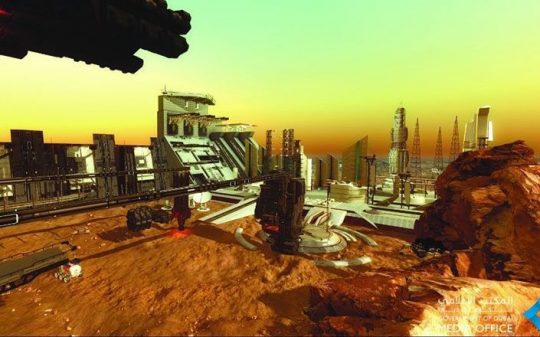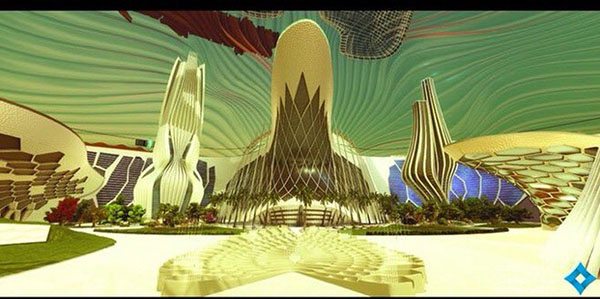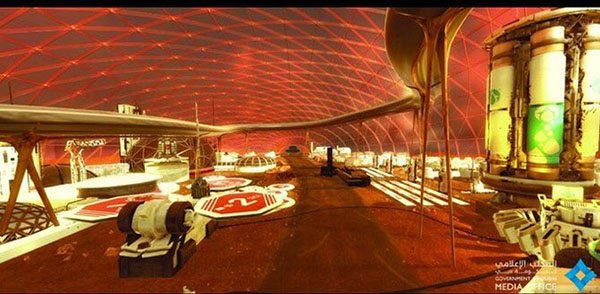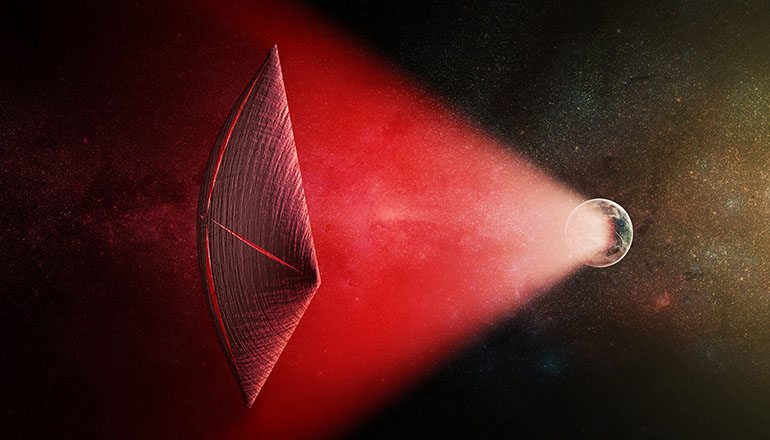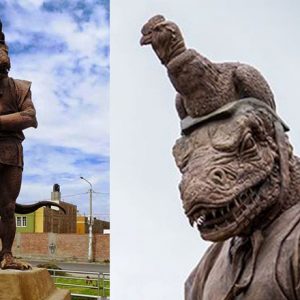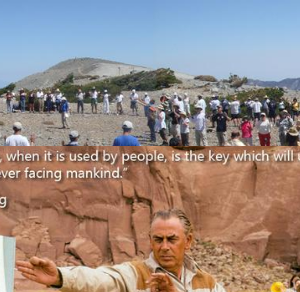The Richie Rich of nations unveiled their plan to establish a martian colony by the year 2117.
Last September, SpaceX CEO Elon Musk unveiled his plans to establish a self-sustainable colony on Mars. In order for that to happen, Musk said the human presence on the red planet would need to number a million people.
The general public was enthralled by the cost of a one-way ticket to our next-door neighbor: less than $200,000. Musk envisioned fleets of hundreds of spaceships leaving Earth once every few years and said this could become a reality in 40 to 100 years. But even the most optimistic of space colonization enthusiast could see these figures seemed ridiculously low, both in terms of costs involved and time it would take to establish a functional martian base.
Queue the interest of the United Arab Emirates and their heaps of petrodollars.
In 2014, the wealthy nation laid the foundation of their own space agency and there are already plans to launch a probe destined for Mars in 2021. Recently, they unveiled their interest in creating a “mini-city and community on Mars involving international cooperation” within the span of a century.
Called Mars 2117, this ambitious long-term project seeks to cement the nation’s vested interest into new sectors of industry and technology. The best thing about the UAE’s involvement with space exploration is that they aren’t experiencing the budget cuts or financial distress that plagues NASA and other space agencies. For Pete’s sake, we’re talking about sheikhs with so much money, they’re gold plating their diamond-studded cars just because they can. Those who feel our planet slowly starting to shake us off would agree those petrodollars could be put to a better use. Like setting a foothold on what might become mankind’s next home.
In a recent tweet, UAE prime minister Sheikh Mohammed bin Rashid Al Maktoum showed his nation’s intention of doing just that.
In a recent press release, the UAE describes how they plan to see the enormously-complex mission reach its completion. It would be a global venture spanning several generations but, as Sheikh Mohammed said, “human ambitions have no limits, and whoever looks into the scientific breakthroughs in the current century believes that human abilities can realise the most important human dream.”
A team of Emirati scientists and engineers have already developed a realistic strategy for building the first human settlement on Mars and it involves robots. Long before any colonists set foot on the dusty world, intelligent machines would need to figure out and build power production facilities, farms and generally create a stable, human-friendly environment. And just take a look at the gorgeous concept art:
I , for one, welcome this newfound interest in space colonization. In a time when space agencies with a long history (Russia, China and Europe) are contracting their efforts and seek to conquer territories closer to home (the Moon), it’s refreshing to see new eyes are set on distant worlds. NASA might have high hopes of sending humans to Mars by 2030 but they didn’t have the budget before Trump took office and it’s very likely their funding will be cut and missions redirected so it’s good other players are joining the race.
